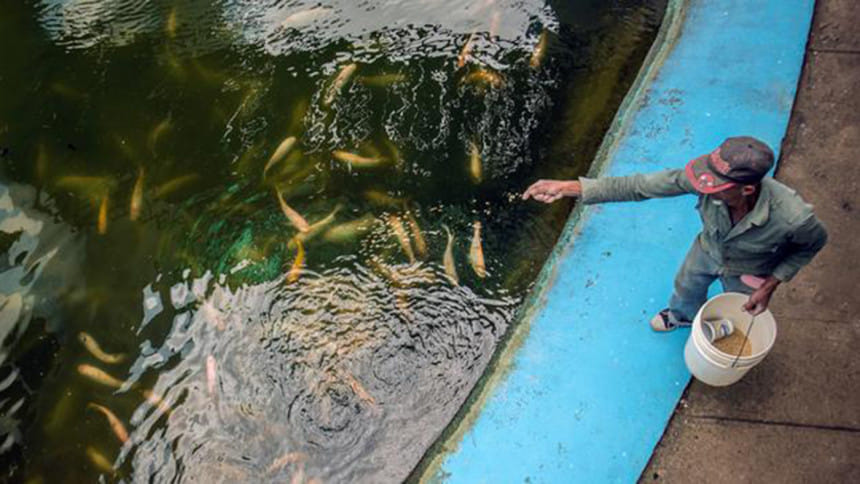Fast-growth fish risks overlooked

A study of global fish populations has suggested fast-growth fish species are more vulnerable to population collapses than previously thought.
It had been assumed that life under the waves reflected life on land and that slow-growing species were most at risk.
The researchers found that overfishing was key, but making fisheries more responsive to environmental changes could help avoid future collapses.
The findings appear in the Proceedings of the Royal Society B journal.
"On the land, slow growing animals are at most risk of decline and we used to think the same was true in the oceans," explained co-author Malin Pinsky from Rutgers University, US.
"But we studied more than 150 populations around the world and found that nearly the opposite was true."
Life on the edge
Dr Pinsky and colleagues found that over the past six decades, fast-growing species that were commercially fished were three times more likely to experience a population collapse than their slow-growing cousins.
He told BBC News that the team identified two main risk factors that made species particularly sensitive to overfishing.
"One is species that grow quickly and the other is species that are found in highly seasonal environments," he said.
"You can think of it like a finely tuned race car travelling at 200 miles per hour - one wrong move and you'd be off the track. Managing a fishery for a fast-growing species is a bit like that: you don't really have time to act when environmental conditions change."
In their paper, the researchers highlighted an example that illustrated their findings: "The collapse of the fast-growing California Current sardine (Sardinops sagax) provides a well-studied example of these interacting factors.
"The stock famously declined in the 1950s during a period of cooling temperatures that were tied to poor recruitment and a much delayed response from management to reduce harvest quotas."
Dr Pinsky said that the findings suggested that management measures needed to pay closer attention to seasonal changes in the environment.
"If you are fishing at a certain level and then the environmental conditions become poor and the fish population starts growing more slowly, it is very easy to drive that population to collapse," he observed.
"Changes in the environment are not very often included in the way that we manage fisheries. This is changing, for example in sardine and anchovy fisheries, but it could be used more widely."
He added: "I don't think we have recognised how sensitive [fast-growing species] are to overfishing. Because they grow quickly, we can harvest a larger proportion of the population every year, and that is usually what fisheries management recommends.
"We fish them harder but it turns out that they are more sensitive than we think."

 For all latest news, follow The Daily Star's Google News channel.
For all latest news, follow The Daily Star's Google News channel. 



Comments